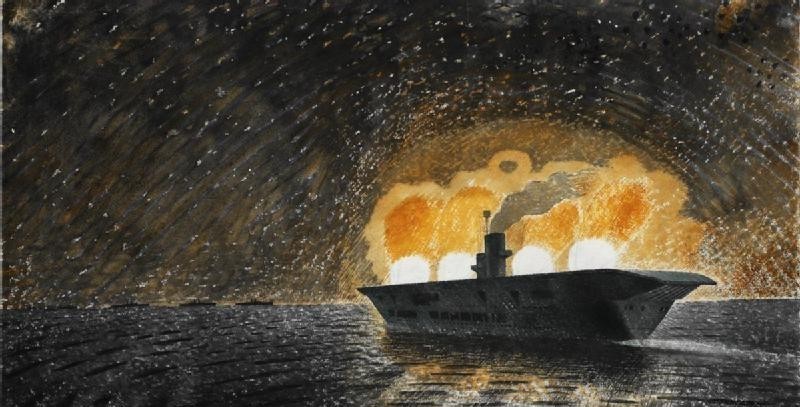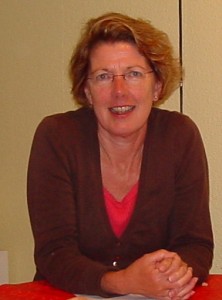I was born in Wimbledon, in the same hospital as Sandy Denny, though not, alas with as good a singing voice. My mother was London Irish, and my father a Glaswegian Scot. He was a British diplomat, so my childhood was spent mainly abroad: in the Philippines, the American South, Morocco, The Gambia, Yemen and Boston, Mass. My secondary schooling was at a boarding school in England, followed by a BA in English from Bristol University (1976), under the severe but also mischievous eye of Christopher Ricks. Other tutors at Bristol at the time were Ian Donaldson, Henry Gifford, Norman Henfrey, Roy Littlewood, and Charles Tomlinson. All these people shared with us students of “English II” the moral passion for a certain literature that is well-chronicled by Christopher Hilliard in English as a Vocation: The ‘Scrutiny Movement’ (OUP, 2012).
To that exciting start in academic life, I added an MA in English (1977) and a BA in History (1978), both from Bordeaux University. Following the career of my first husband Jean-Paul Goethals (1952-1991) as a coopérant in Tunis, and then in Saudi Arabia, I taught English at a variety of levels. We returned to France, to St. Etienne and Lyon where, though I never completely gave up teaching, much of my energy was taken up with bringing up our three children: Martin (born 1982), Olivier (born 1985) and Juliette (1986-2003). I also used this time to prepare the CAPES and agrégation, the civil service exams. which in France allow one to enter the teaching profession via a permanent post which, in my case, was in a secondary school in Vénissieux, well-known for being what the French call a quartier chaud.
After a year at the Lycée international de Lyon (1992-93), I entered the English Department of the University of Lyon 2 as a professeur agrégé. Under the supervision of Adolphe Haberer, I presented in 1997 a PhD on the anthologies of English poetry published between 1912 and 1992. I was then recruited to teach British and Commonwealth history as a maître de conférences in the Department of English Studies. With the generous support of Maurice Chrétien and Neil Davie, as well as that of many other colleague-friends, I obtained a habilitation à diriger des recherches (HDR) in 2009, after which I was pleased to be offered a post as full professor in the Department of English Studies at Toulouse Le Mirail, now renamed Université de Toulouse-Jean Jaurès (UT2J).
As many an introduction has shown, it is surprisingly difficult to give adequate acknowledgement of the help given to our work by those closest to us, but there is no doubt that my way of thinking owes much to the climate of love, stability and intellectual exchange provided by my companion of more than twenty years, Olivier Keller. To share a life (though not a roof) with someone equally passionate about research is a blessing. The list of his published work on the prehistory of mathematics is a distinguished one and includes Aux Origines de la géométrie: Le Paléolithique et le monde des chasseurs-cueilleurs (2004) and Une archéologie de la géométrie: Peuples paysans sans écriture et premières civilisations (2006) and L’Invention du nombre: Des mythes de la création aux Elements d’Euclide (2016).
In France, university teachers, whatever their academic rank, are called enseignant-chercheurs so my first loyalty is to my students and to my local research group Cultures anglo-saxonnes (CAS). I also contribute to Géographies critiques / Critical Geographies, a thematic research group which associates a number of universities from southern France.
Why poetry? How to rationalize the (perhaps) irrational? Like all English-speaking children I delighted in nursery rhymes and my first poetry book was Dr. Seuss’s The Cat in the Hat. Besides, a cherished memory: when I was six or seven, my mother would take me to ballet class on Wimbledon Hill and on the way there she never failed to point out the house of Robert Graves. Or does my love of poetry date back to my time at the American School of Tangier, where the principal at the time was Omar Pound, son of Ezra? Certainly it was there that I was given, as a school prize for French, my second poetry book: the Fables de la Fontaine. It was also there that I shared a love of words (their shape, their import) with my first best friends: Nadia Benabid with whom I acted in the school play Oedipus and Jan Tueller (Lowman), whose Mormon family (indirectly) led me to savour the accents of the King James’ Bible. These, and the weekly collects that had to be recited every Sunday at the Anglican school I later attended, lent a specific rhythm to all my thoughts, then and since.
No doubt my father Granville Ramage (1919-2011) encouraged my ear for poetry. A graduate of Glasgow Academy and Glasgow University, he was of a generation for whom studying the classics meant being able not just to read but also to write poetry in ancient Greek. He was a diplomat by profession and a bon vivant by nature. In convivial conversation, an activity at which he excelled, he tended more towards lecturing than listening. Yet his sure taste for Scottish poetry and his lifelong friendship with Maurice Lindsay (1919-2009) surely shaped my own taste in poetry. I feel moved to record that the moment when he could no longer recite word-for word, but only paraphrase, Hugh MacDiarmid’s “The Little White Rose“, I knew that his death was imminent.
In sum, the reading of poems has always been part of my life, but it did not become an academic undertaking until I realized that for many people, and perhaps particularly academics, poetry is considered, if at all, as an unnecessary and outdated activity. A lot of my research, and some of these pages, are devoted to correcting that dismal view .

